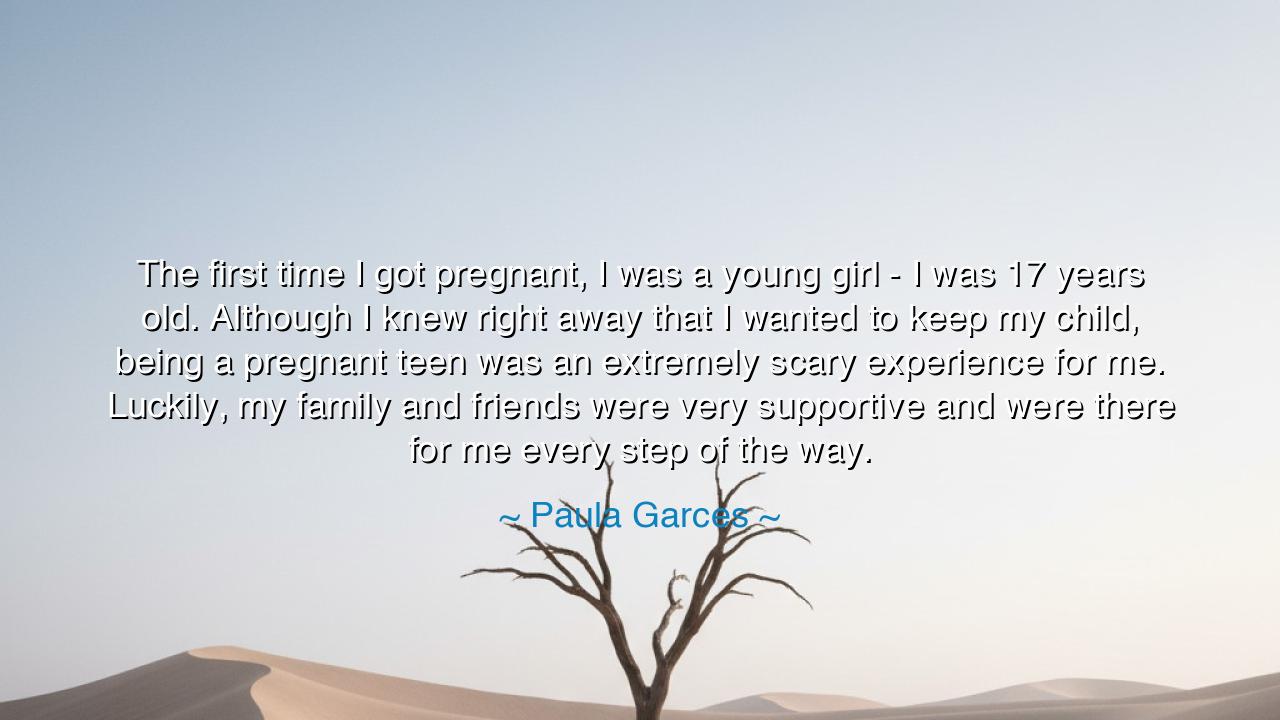
The first time I got pregnant, I was a young girl - I was 17
The first time I got pregnant, I was a young girl - I was 17 years old. Although I knew right away that I wanted to keep my child, being a pregnant teen was an extremely scary experience for me. Luckily, my family and friends were very supportive and were there for me every step of the way.






When Paula Garcés spoke, “The first time I got pregnant, I was a young girl - I was 17 years old. Although I knew right away that I wanted to keep my child, being a pregnant teen was an extremely scary experience for me. Luckily, my family and friends were very supportive and were there for me every step of the way,” she gave voice to the timeless struggle of youth confronted with sudden responsibility. In her words is both fear and courage, both trembling and resolve. For at the heart of this testimony lies the truth that life often thrusts us into storms before we feel ready to sail them, and that in such storms, support and love can make the difference between despair and strength.
The origin of her wisdom lies in her own journey, not as an actress alone, but as a young woman who faced the weight of motherhood while still walking the uncertain path of adolescence. To be seventeen is to stand at the threshold between childhood and adulthood, and to carry new life at that threshold is to be cast suddenly into responsibility that feels larger than one’s years. Her fear was natural, yet her resolve—to keep her child—reveals a heart already strengthened by love. It is in this union of fear and love that her words gain their enduring power.
History, too, carries echoes of such trials. Consider the story of Mary Shelley, who, as a young woman not yet twenty, gave birth to children while simultaneously crafting Frankenstein. Though much of her life was shadowed by loss, her courage to embrace motherhood while still discovering herself shaped her art and resilience. Or think of countless unnamed mothers throughout history, who bore children in youth, often in poverty or hardship, yet found strength in the support of family or community. Their stories remind us that young mothers, though vulnerable, carry within them an extraordinary well of endurance when surrounded by compassion.
Paula’s words also illuminate the sacred role of family and friends. She acknowledges that though she was afraid, she was not alone. The strength of her support system transformed what might have been an unbearable burden into a survivable journey. This truth is eternal: when communities rally around their vulnerable, life flourishes. But when support is withheld, fear multiplies and futures wither. In her gratitude, we are reminded that the bonds of kinship and friendship are not luxuries—they are lifelines.
There is also in her story a quiet defiance against shame. Society often casts judgment upon the pregnant teen, forgetting that judgment does not uplift but destroys. Paula’s choice to speak openly, without hiding, is itself an act of courage. She refuses to allow fear or stigma to silence her, teaching us that dignity is preserved not by hiding our struggles, but by walking through them with honesty and the support of those who love us.
The lesson for future generations is clear: when life thrusts great responsibility upon us too soon, we must meet it with courage, but also with the humility to accept help. No one survives such trials alone. To those who encounter young mothers or fathers, offer not condemnation but support, for in your kindness you may be sustaining not just one life, but two. And to the young who face fear, remember: even if you feel small, the seed of courage within you can grow stronger than you ever imagined, especially when watered by the love of others.
Practical wisdom flows from this: if you are young and burdened, seek out those who will stand beside you. Do not be afraid to lean upon family, friends, or community. If you are older, be the support that a young soul may desperately need—listen, comfort, and guide without judgment. For in doing so, you not only protect the vulnerable, but you embody the ancient duty of humanity: to bear one another’s burdens.
Thus let Paula’s words echo as a teaching across generations: fear may come suddenly, but so too can courage; hardship may arrive early, but so too can love. And when fear, courage, and love are joined, the impossible becomes bearable, and new life—both of mother and child—may flourish against all odds.






AAdministratorAdministrator
Welcome, honored guests. Please leave a comment, we will respond soon